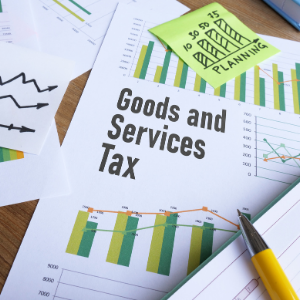
Understanding Illinois Excise Tax: a Comprehensive Guide
Understanding the complexities of the Illinois excise tax is critical for anyone wanting to maximize their real estate budget. The Illinois Housing Excise Tax determines overall transaction costs when purchasing or selling property.
This tax, charged on real estate transfers, can substantially impact financial planning during these transactions. Potential buyers and sellers can use resources like the Illinois Housing Excise Tax Calculator to correctly estimate the required taxes, resulting in more exact budgeting and financial planning.
This calculator considers various criteria that influence excise tax rates, such as property valuation and location in Illinois, to provide users with a personalized estimate. Gaining a thorough understanding of how these taxes function benefits cost forecasting and making informed decisions throughout the real estate transaction.
With precise calculations at your fingertips, you can confidently plan your investments and negotiate the complexities of Illinois’ real estate market.
Differences Between Sales Tax and Excise Tax in Illinois

Understanding the distinctions between Illinois’ sales and excise taxes is critical for managing your real estate budget. Sales tax in Illinois is typically levied on the sale of goods and services, with a percentage added to the purchase price at the point of sale.
In contrast, excise taxes are often levied on specific items or transactions, such as real estate transfers. The Illinois Housing Excise Tax Calculator helps manage these financial complexities.
Unlike sales taxes, which are visible in retail transactions, excise taxes may be embedded in the price of specific products or services, affecting real estate transaction costs. Understanding how excise taxes affect overall expenses might help people make better budget decisions when purchasing or selling property.
Using this calculator, potential buyers and sellers can better understand their financial commitments linked to housing excise taxes, allowing them to manage their resources more efficiently while conducting real estate transactions in Illinois.
Key Factors Influencing Excise Taxes in Illinois
Understanding the primary elements determining excise taxes in Illinois is critical for maximizing your real estate budget using the Illinois Housing Excise Tax Calculator. The key aspect influencing these taxes is the property’s assessed value, which is the basis for computing the tax amount.
The property’s location in Illinois is also essential, as tax rates and rules might vary by county and municipality. Furthermore, recent changes in state legislation might impact excise tax rates, so remain current on any new laws that may affect your calculations.
Economic variables like inflation and market demand can further impact property values and excise tax payments. By accounting for these variables and using an accurate calculator, you can efficiently manage your real estate budget and predict any changes in your financial planning techniques.
Common Products Subject to Excise Tax in Illinois
In Illinois, various ordinary products are subject to excise tax, which affects how you manage your real estate budget. Tobacco and alcohol, for example, are subject to significant excise taxes that can influence purchase decisions.
Motor fuels, such as gasoline and diesel, are substantially taxed, reflecting state and federal levies that help fund infrastructure. Additionally, gambling activities in Illinois are subject to excise taxes, which affect the entire cost of participating in lotteries or casino enterprises.
Since cannabis’ legalization, taxation of cannabis products has become increasingly important, with varying rates applied based on product type and THC concentration. Understanding these excise taxes is critical for anyone looking to optimize their real estate budget with tools like the Illinois Housing Excise Tax Calculator, which provides insight into broader economic factors that indirectly affect housing costs through increased pricing of goods and services in the state.
How to Calculate Your Excise Tax in Illinois
The Illinois Housing Excise Tax Calculator, a valuable tool for optimizing your real estate budget, will help you calculate your excise tax in Illinois more efficiently. Understanding how to use this calculator is critical for anyone purchasing or selling property in the state.
Begin by obtaining all relevant facts about your real estate transaction, such as the property’s sale price and location, as these elements substantially impact the excise tax rate. Enter your information into the Illinois Housing Excise Tax Calculator to get an exact estimate of your prospective tax liability.
This user-friendly application considers current Illinois excise tax legislation to ensure accurate computations, allowing you to control expenditures successfully. This calculator provides significant insight into how much tax is owed at closing, allowing for better financial planning and budgeting throughout the real estate process.
Using the Illinois Housing Excise Tax Calculator simplifies complex computations and provides clarity. It ensures state compliance while protecting your financial interests in every property deal.
State Vs. Federal Excise Taxes: What You Need to Know for Illinois
Confusion can arise due to interstate differences in legislation, especially concerning real estate in Illinois. The Illinois Housing Excise Tax Calculator simplifies your real estate expenditure by factoring in the excise taxes imposed.
Unlike the more uniform federal excise tax, which encompasses broad categories like gasoline and tobacco, Illinois state excise taxes have a unique structure. Each has an added local governmental consideration that impacts property transactions. Such state-specific taxes may include transfer taxes for selling real estate in Illinois, which might vary greatly depending on the county or municipality.
With financial discipline growing more imperative today, homebuyers and sellers are searching for innovative strategies to revamp their finances. From formulating tax liabilities to streamlining financial resources, strategic filing is made feasible with this Go-To calculator, motivated by powerful tax computation algorithms. This allows sellers to strategically showcase their offerings without losing value while remaining compliant with all preconditions needed across the state.
For those looking to skip the complications altogether, A Team Real Estate Solutions offers a fast, no-hassle solution—buying homes as-is across Illinois, regardless of condition or tax burdens, with a simple cash offer process.
Navigating the Complexities of Alcohol and Tobacco Taxes in Illinois

Taxation on alcohol and tobacco products in Illinois remains one of the taxes that people find difficult to understand. However, applying tools such as the Illinois Housing Excise Tax Calculator is necessary for people trying to maximize their real estate budgets. As in all other states, alcohol and tobacco products are subject to special excise taxes in Illinois for revenue generation.
If you plan on investing in property, these taxes must be considered during your comprehensive financial planning. The additional tax burden can be challenging for future home owners and investors in real estate markets who wish to renovate existing dwellings or build new ones.
Awareness of the product categories—beer, wine, spirits, cigarettes, or other tobacco products—and the applicable excise tax rates will aid their budgetary preparations. Understanding how these taxes impact disposable income and providing a robust financial plan aids better resource management. Use the Illinois housing exercise tax calculator and plan to avoid unexpected costs when purchasing properties.
An Overview of Motor Fuel Taxes in the State of Illinois
Motor fuel taxes have historically served an essential purpose in the context of infrastructure and transportation development in Illinois. These taxes also influence how homeowners manage their budgets for real estate purchases. Therefore, one cannot overlook these taxes regarding effective budgeting for real estate expenditures.
In addition to local motor fuel taxes that differ by town, the Illinois state government levies an excise tax on gasoline and diesel. This taxation system has economic implications that impact a particular region’s property values and living costs.
With tools like the Illinois Housing Excise Tax Calculator available, anyone can assess how real estate decisions fluctuate with changes in fuel taxation. Given variable tax rates accompanied by prospective changes in legislation, staying informed about tax policies assists budget planning concerning real estate transactions within Illinois.
The Impact of Excise Taxes on Consumers and Businesses in Illinois
Through increasing housing transaction costs, the Illinois Housing Excise Tax tremendously affects consumers and businesses alike. This tax adds additional burdens to the acquisition costs for consumers purchasing property, which may hinder affordability and alter purchase behavior.
Buyers and sellers of real estate must consider these expenses, mortgage payments, and moving costs when considering a new home. On the other hand, experts and developers within the real estate industry must include such taxes in their financial models, which influences their pricing strategies and competition within the market.
In this regard, the Illinois Housing Excise Tax Calculator is a valuable resource. It enables buyers and helps sellers assess potential tax obligations related to specific properties, aiding in precise budget planning for real estate transactions. Understanding how excise taxes impact transaction costs enables stakeholders to better align decisions with strategic financial goals in Illinois’ multifaceted real estate environment.
Strategies for Reducing Your Excise Tax Liability in Illinois
Considering available tax-saving strategies begins by optimizing your budget concerning other liabilities, such as excise tax repayment. Thus, your total remittable amount owed against the state of Illinois, represented on behalf of the housing executive, decreases. Purchasing real estate can also be beneficial in paying less taxes.
One approach is identifying eligible lower-value deductions under applicable federal law that could be beneficial by considerably lowering overall taxable values. Also actively reviewing the optimal timing around executing particular holding agreements to defer certain liabilities may strategically place one on balance, preferring the prevailing fed rates (help towards leveragee), enabling one to expect household profit amidst market fluctuations or alterations upon enacted fiscal policies.
Engaging a local tax advisor familiar with Illinois excise taxes can help you reduce liability by utilizing available credits. Regularly reassessing your real estate portfolio, in response to market fluctuations and legislative changes, will help you achieve an optimal budget aligned with your financial goals while minimizing excise tax liabilities.
How Changes in Legislation Affect Excise Taxes in Illinois
Changes in legislation greatly influence Illinois excise taxation, especially in real estate. New policies or amendments to existing laws inevitably impact the computation and collection of excise taxes during property transfers.
For instance, changes in state policy may shift tax rates or reclassify taxable property limits, which affect the transactional climate for buyers and sellers. Understanding these changes allows individuals and businesses to plan their budgets better using tools like the Illinois Housing Excise Tax Calculator.
This calculator has rapidly enhanced compliance with state laws while improving expenditure forecasts by streamlining the complex processes associated with excise tax duties. This is especially important for Illinois real estate market stakeholders who wish to manage their expenses efficiently and maximize potential savings from careful, long-term strategic spending plans.
Historical Trends and Future Outlook for Excise Taxes in Illinois
Illinois’ budgetary situation has been considerably affected by excise taxes. These taxes have usually changed over time due to changes in the economic climate, legislation, or public policy.
As a result of changes in public policy and economic conditions, real estate investors and homeowners looking to optimize budgets utilizing The Tax Calculator could notice recurring patterns in tax rates that would allow forecasting for upcoming reductions during prospective transactions, as well as predictive analysis for periods of increased investment activity.
Due to budgetary needs and economic challenges, the state’s excise taxes have been subject to frequent changes. Stakeholders remain attentive in anticipation of another tax rate change, which will likely come as a reaction to Illinois’s ongoing housing market changes. In this case, the Illinois Housing Excise Tax Calculator may help forecast future excise tax trends.
The forward-looking approach empowers taxpayers by enabling them to make informed decisions when buying or selling properties. Thus, it helps them meet their current and future tax obligations while effectively budgeting for real estate expenses.
How Do You Calculate Excise Tax?

To maximize your real estate budget while utilizing the Illinois Housing Excise Tax Calculator, you must understand specific critical issues so that the excise tax computation can be accurate. Most often, the excise tax represents a percentage of the selling price of property and varies according to local government regulations.
Start by gathering data on applicable sale prices and available exemptions or deductions. Then, these details are entered into the Illinois Housing Excise Tax Calculator, simplifying compliance by automatically applying relevant rates and provisions for Illinois law.
This tool yields precise estimates of costs and calculates excise tax liabilities based on municipal ordinances and recent law changes affecting real estate deals. This calculator evaluates all relevant factors to assist you in making decisions regarding your budget while ensuring that every excise tax obligation is projected and incorporated into your fiscal strategy.
How Do I Calculate My Illinois State Tax?
Maximizing your real estate budget will enable you to use the Illinois Housing Excise Tax Calculator; however, it may require some strategic steps. For starters, ensure you have documented all transactions involving your real estate dealings for the period.
The Illinois Housing Excise Tax Calculator simplifies the calculation burden by allowing input of data such as the home’s sale price and any available exemptions. With this tool, precise computations can be done for the excise tax payable on property sales in Illinois.
Critical concepts like how the excise tax is computed based on a fixed percentage of a property’s selling cost remain essential. This information is easily accessible online, making it convenient for users to input relevant figures like the date and county of the transaction to get tailored calculations.
This forward-thinking strategy ensures that your real estate spending aligns with state requirements and that your resources are appropriately managed. The accuracy of the Illinois Housing Excise Tax Calculator can help you make better decisions and further optimize your financial strategies for real estate investments in Illinois.
What Is the 10.25 Tax in Illinois?
The 10.25% tax is one of the cornerstones of the state’s taxation system, significantly impacting real estate activities within its borders. This rate primarily concerns the sales tax charged on certain goods and services. However, this underscores why it is important to consider spatial considerations as a line of expense when strategizing about real estate investment.
Property buyers and investors must accurately estimate these taxes to stay compliant and achieve optimal financial projections, because they need these figures to be maintained legally. The Illinois Housing Excise Tax Calculator empowers you to accurately calculate tax payables based on relevant sub-national jurisdictional rates governing a transaction.
The calculator allows users to navigate the complexity of 10.25% tax complications effortlessly, safeguarding their real estate investments while fulfilling all regulatory requirements. Such tools provide more precise estimates for spending, which aids in more accurate forecasting. Thus, investors can increase their returns from investments in Illinois’s dynamic market by optimally positioning themselves economically.
What Is the Fuel Excise Tax in Illinois?
As a homeowner or someone calculating property taxes using the Illinois Housing Excise Tax Calculator, it would be beneficial to be informed about other forms of taxation, like the Illinois gasoline excise tax. The fuel excise tax is a tax imposed on the purchase of gasoline and diesel in a given state to finance transport infrastructure projects. This tax indirectly impacts real estate prices as it improves the ease of access to and development within communities.
Illinois is implementing an additional state fuel excise tax to maintain public roads and transportation facilities, improve the appeal of residential properties, and increase their value in the housing market. Budgeting from this dimension will reveal opportunities for lower expenditures due to state taxes, rental yield potential, and investment opportunities across various real estate markets in Illinois.
Fuel excises and other governmental-imposed fees serve as an invaluable supplement to making well-rounded decisions regarding housing investment opportunities.
Whether you’re overwhelmed by tax complexities or just looking to move on quickly, A Team Real Estate Solutions makes the process simple—offering cash for homes in any condition and handling all the details so you don’t have to in selling your home for cash in Illinois and all over Aurora. Contact us at (708) 608-0420 to get your offer today!
Helpful Illinois Blog Articles
- How Much Does It Cost to Sell a House in Illinois
- Can I Sell My House at Auction in Illinois
- How To Sell A House In Poor Condition In Illinois
- Guide To Short Selling Your Home To A Relative In Illinois
- Guide To Repairing Fire-Damaged Houses In Illinois
- Can My Ex-Partner Sell Our House Without Consent In Illinois
- Guide To Selling Your Home By Owner In Illinois
- Understanding Appraisal Required Repairs In Illinois Real Estate
- How Long Can You Leave Your Property Unoccupied
- How To Legally Sell Your Parents’ House In Illinois Using Power Of Attorney
- How To Opt Out Of An HOA In Illinois
- Affordable Housing Options In Illinois: Discover The Cheapest Places To Live
- Navigating Home Sales During Forbearance In Illinois
- Renovating A House Before Selling in Illinois
- Navigating a Home Purchase Before a Sale in Illinois
- Handling Delinquent HOA Payments in Illinois
- Understanding Capital Gains Tax on Home Sales in Illinois
- Can You Sell a Rental With Tenants in Illinois
- Understanding Closing Costs For Rental Property In Illinois: A Comprehensive Real Estate Guide
- Guide To Selling A House With Outstanding Property Taxes In Illinois
- How To Successfully Sell A Storm-Damaged House In Illinois
- Optimize Your Real Estate Budget With The Illinois Housing Excise Tax Calculator
- How To Sell Your Illinois Home With A Reverse Mortgage: Essential Tips And Insights
- Understanding Hospital Liens On Your Illinois Home: What Homeowners Need To Know
- Essential Equity Insights For Selling Your Home In Illinois

| TAXPAYERS | TAX SYSTEM | THE PRAIRIE STATE | PAYCHECKS | INCOME TAX | INCOME TAX RATE |
| INCOME TAXES | USE TAX | VEHICLE | FEDERAL TAX CODE | TAX WITHHOLDING | WITHHOLDING |
| MONEY | EMPLOYEES | EMPLOYER | RETAILER | CHICAGO, ILLINOIS | CHICAGO |
| MEDICARE | ZIP CODE | TAX-FREE | TAX EXEMPTION | SOCIAL SECURITY | SOCIAL SECURITY AND MEDICARE TAXES |
| SOCIAL SECURITY TAX | MEDICARE TAX | FEDERAL INCOME TAX | FEDERAL INCOME TAXES | FOODS | FEE |
| TAX CODE | TAX CREDITS | MERCHANDISE | GALLON | FLAT RATE | FLAT INCOME TAX |
| WAGES | INCOME TAX RETURN | TAX RETURN | SMARTASSET | RECEIPTS | MORTGAGES |
| MACHINE | INSURANCE | GASOLINE TAX | GAS TAX | FILING STATUS | SINGLE FILERS |
| CANDY | WORKFORCE | WASHINGTON | VIRGINIA | TELECOMMUNICATIONS | TECHNOLOGY |
| TAX BRACKETS | SOFT DRINKS | SAVINGS ACCOUNT | SALARY | SALARIED EMPLOYEES | MOTOR VEHICLE |
| MANAGEMENT | LOOKUP | HOUR | TAX YEAR | FINANCIAL ADVISOR | FEEDBACK |
| EARNED INCOME | EARNED INCOME TAX CREDIT | DRUGS | DATABASE | 401(K) | SALES TAX RATES |
| SALES TAX RATE | STATE AND LOCAL TAXES | SALES TAX RATES FOR |
